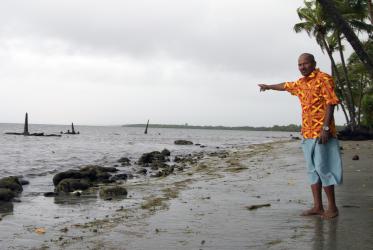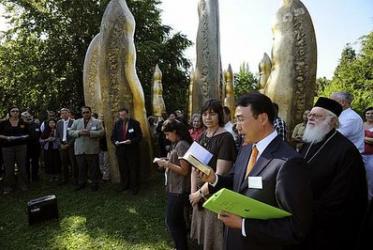Displaying 1 - 19 of 19
The cry of the Papuans in Indonesia
14 November 2019
Zambia statement expresses concern over lack of peace
11 January 2018
Fijian Methodists call for prayers for COP23
07 November 2017
In Zambia, foreign investors complicate “economy of life”
06 September 2017
Kenya: Voice of faith communities crucial in overcoming HIV
14 October 2016
Preventing incitement to violence which could lead to atrocity crimes in Africa
09 - 11 May 2016
Addis Ababa, Ethiopia
Churches have a special role to play in HIV response
18 November 2014
Condolences on the death of Tuikilakila Waqairatu
11 February 2014
Churches engage in development dialogue on Africa
06 March 2013
Churches must be "salt of the earth"
31 August 2009










